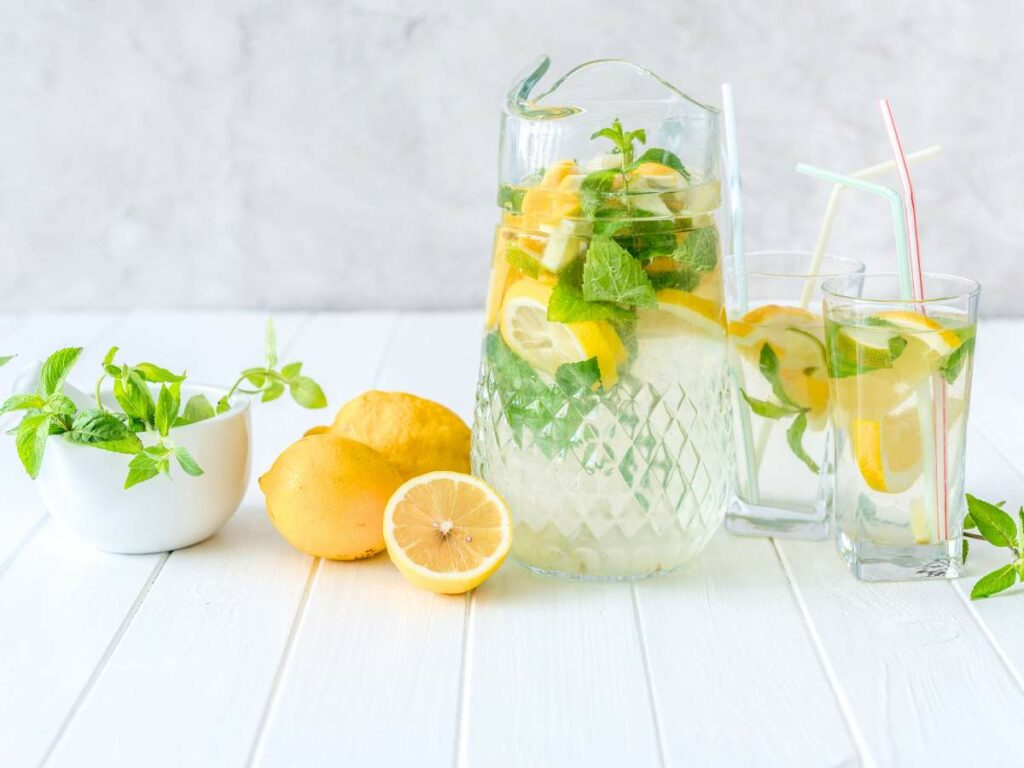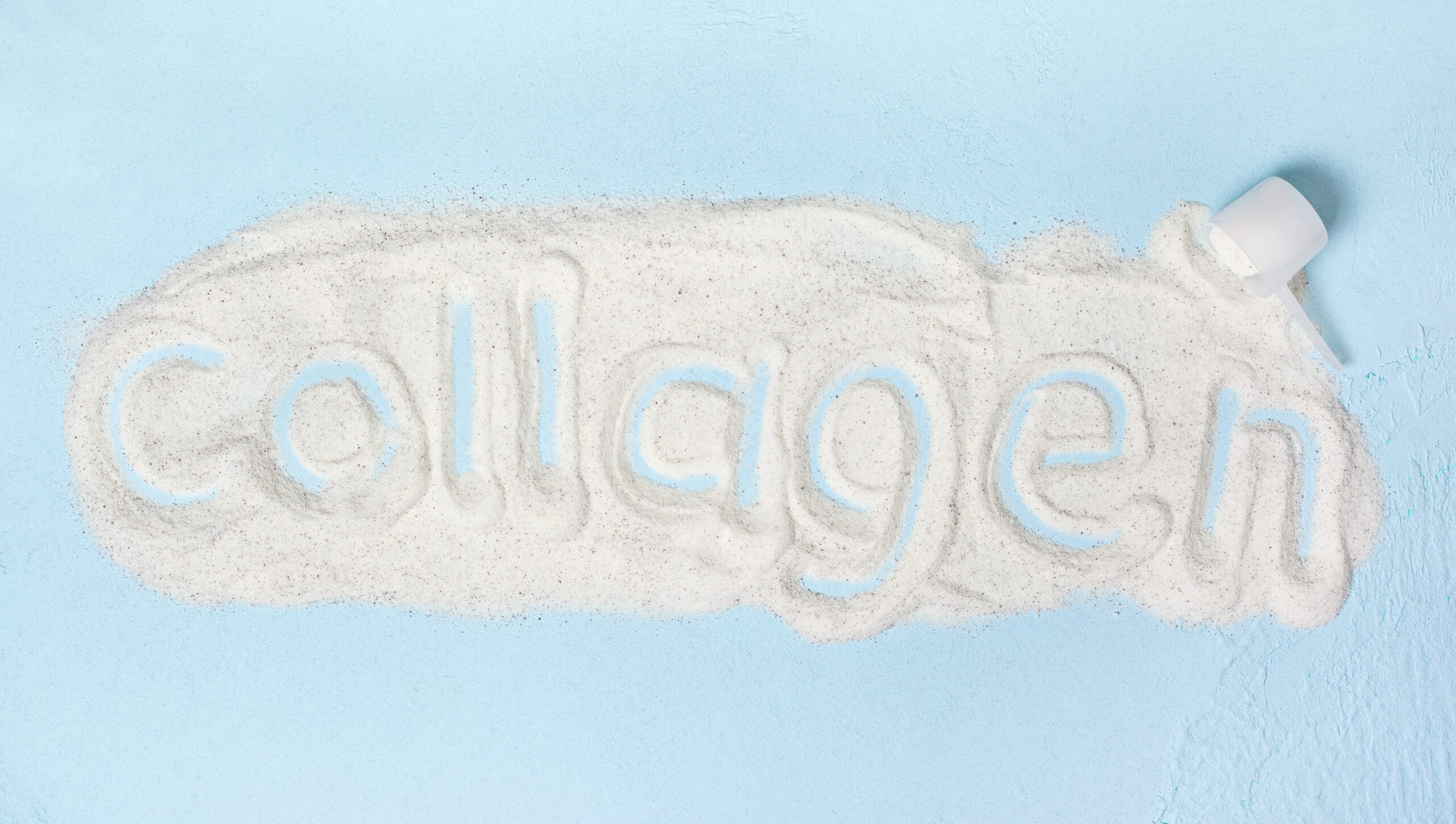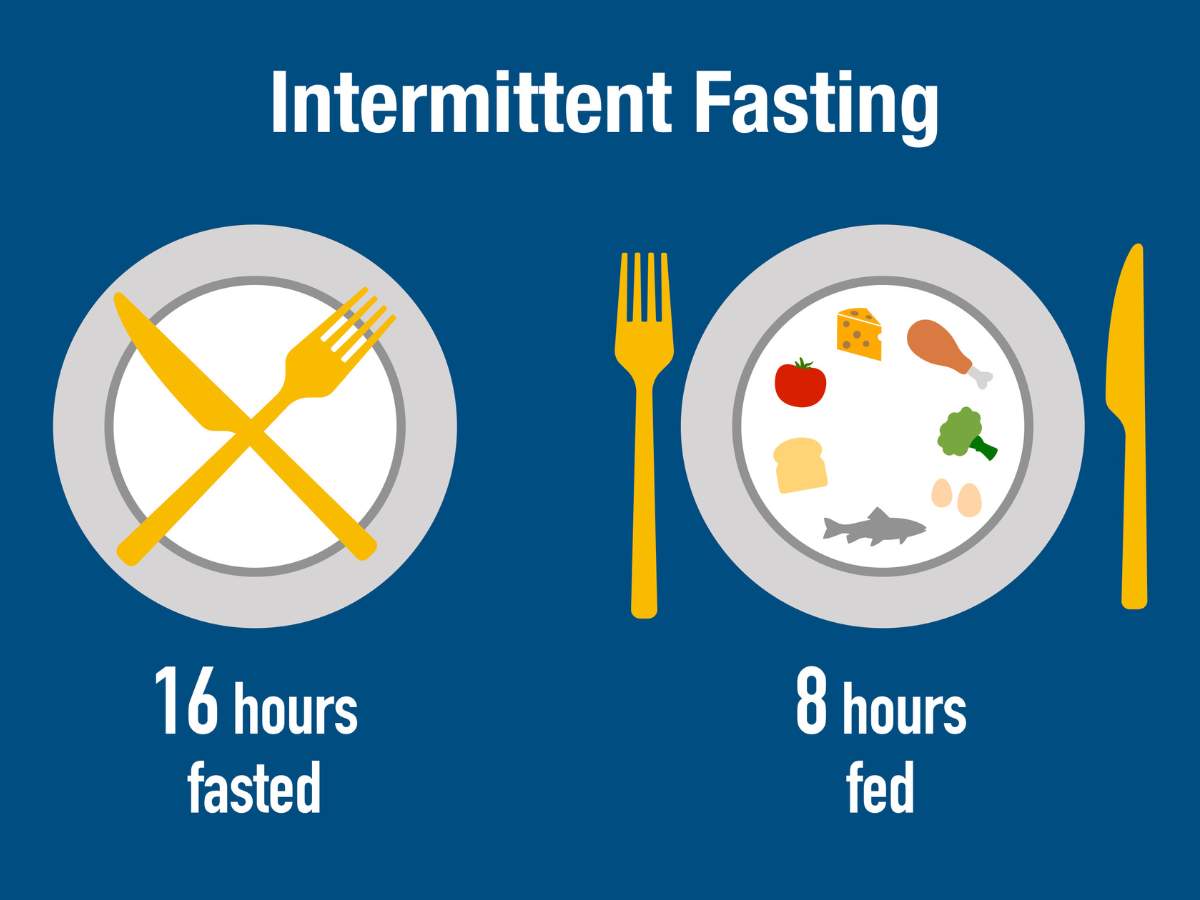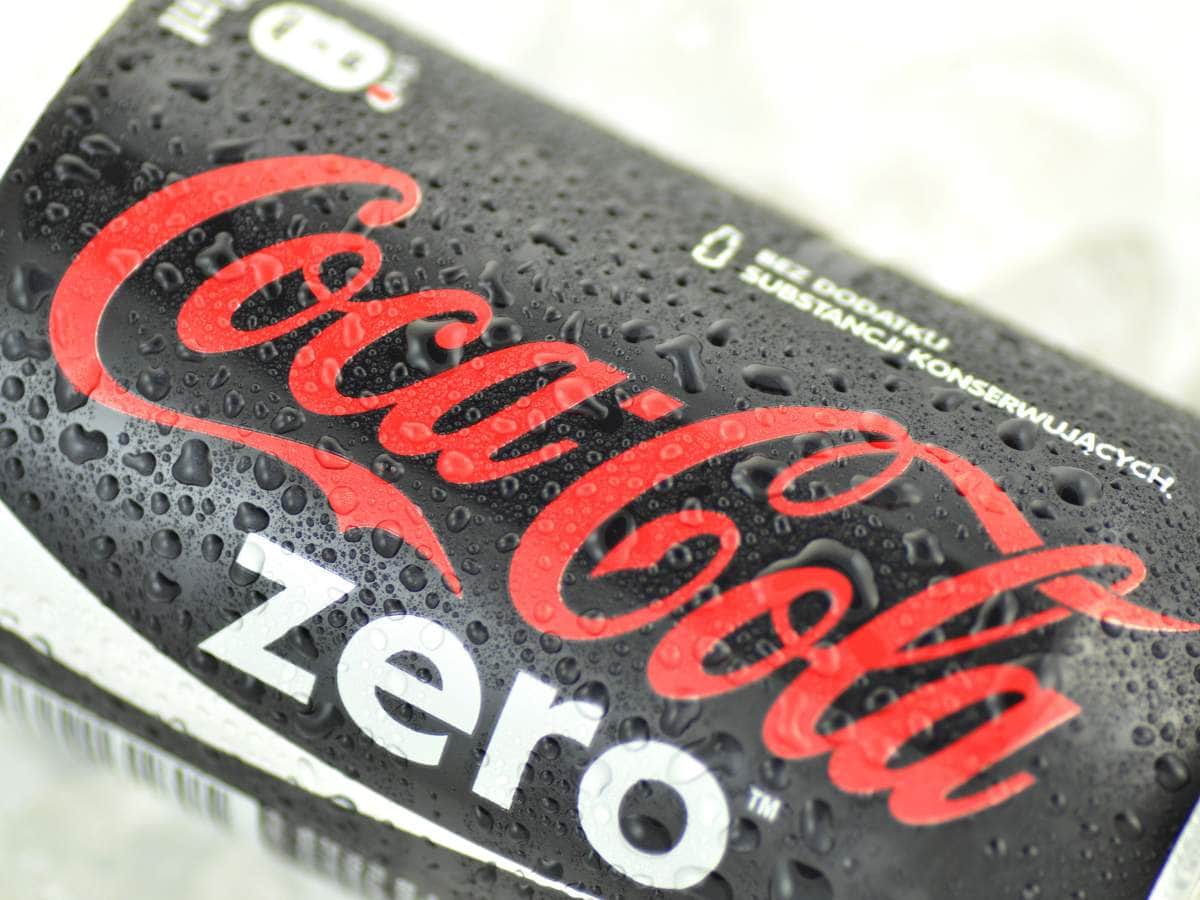Can I Drink Lemon Water During Intermittent Fasting
Primal Edge Health participates in the Amazon Services LLC Associates Program and other affiliate programs and therefore, may collect a share of sales or other compensation from the links on this page. This comes at no additional cost to you, and all the prices and availability are accurate at the time of publishing.
Lemon water is a refreshing addition to anyone’s diet, whether you’re on a wellness diet or not. But if you’re an intermittent faster, the important question is, “Can I drink lemon water during intermittent fasting?”

Spoiler alert: Yes, you can! Before you add lemon water to your daily routine, however, let’s talk about why you should be doing it and how it can affect your overall health.
Table of Contents (click to view)
Can You Drink Lemon Water While Intermittent Fasting?
The main goal of intermittent fasting (IF) is to cause a metabolic switch wherein the human body exhausts its sugar stores and starts burning fat instead. It’s similar to ketosis in a ketogenic diet, but with intermittent fasting, we focus on when we eat instead of what we eat.
The intermittent fasting diet is all about reserving all your calories for your eating window and fasting for the rest of the day. People follow various protocols that best fit their lifestyles, such as 18:6, 16:8, alternating fast days, One Meal a Day (OMAD), and so on. However, the goal remains the same: fast for the majority of the day and consume your calories within a specific time period at the same time every day.
Although the focus of intermittent fasting is when you eat, what and how much you eat still matters a great deal. Some people base their caloric intake based on their Total Daily Energy Expenditure (TDEE), while others calculate their energy needs based on their height, weight, sex, and physical activity.
Regardless of how you calculate your energy allowance, it’s important to stay within that allowance if you want to lose weight. So, contrary to popular belief, you can’t just eat anything you want during your eating window.
Why Is Lemon Water IF-Friendly?
Now, let’s take lemon water into account. A whole lemon only has 19 calories. Of course, you won’t use the whole lemon to make a glass of lemon water, making the total calories almost negligible.
So, two plus two is four, and lemon water is completely IF-friendly since it has such a small number of calories. You can drink plenty of lemon water throughout the day, and it won’t affect your fasting state.
Are Lemons Keto or Carnivore Diet-Friendly?
Lemon water is a great addition to your drink options while fasting, but will it also fit a keto or carnivore diet? Lemon water fits the IF lifestyle well because it’s low-calorie. Now, let’s take a look at the carbs.
An average-sized lemon will have about 6 grams of carbohydrates, while a hundred grams of lemons have about 9 grams. In the context of keto, anything under 10 grams is not a significant amount.
Most people on keto will keep their carbohydrate intake to less than 50 grams of total carbs per day. If you drink lemon water with the juice of half a lemon, that’s only about 3 grams. It won’t spike your insulin levels nor take you out of your fasted state.
What about people on the carnivore diet? A traditional carnivore diet aims for zero grams of carbs per day. However, 3 grams of carbs is negligible when you look at the bigger picture, unless you are a carnivore purist or have auto-immune reactions to citrus.
Overall, lemons and lemon water are keto-friendly as long as you use only a fruit or two per day. On the other hand, lemon can also be carnivore diet-friendly since you won’t use a lot of it. Plus, it’s almost impossible to net zero carbs every single day. Carnivore staples like lean proteins or cheese still have a small amount of carbs in them, so, in my opinion, lemon water can also be an excellent add-on to the carnivore diet, given that you don’t have any negative symptoms when consuming it.

Top 5 Benefits of Lemon Water
Lemon water fits the intermittent fasting lifestyle and low-carbohydrate diets like keto, but there’s more to it than just being an alternative to plain water. Let’s take a look at why you should be drinking lemon water:
1. Helps Aid Weight Loss
Lemon water itself will not cause weight loss, but it can help you shed excess body weight by acting as a replacement for high-calorie drinks, such as soda, juice, and energy drinks. Sipping lemon water can also help promote satiety and fullness, which may lead to less eating and unnecessary snacking. In turn, this can help you maximize the benefits of intermittent fasting.
For example, I used to be so hungry when I woke up in the morning, and sometimes, this level of hunger caused me to overeat at breakfast. Toast, bacon, eggs, fruit juice, black coffee, a ton of butter, the works. Then, I started drinking lemon water first thing in the morning, and it wasn’t long until I could finally get out of the habit of eating more than normal at breakfast.
2. Promotes Digestion
In a 2022 study on the effects of tea, water, or lemon juice on the glycemic response, satiety, and digestion, researchers found that lemon juice lowered the glycemic response and increased gastric acid secretions and emptying rate.
In simpler words, lemon juice did not spike blood sugar levels and improved digestion by causing an increase in gastric acid. Gastric acid helps break down food before it moves further down your digestive system.
Given this information, drinking lemon water before meals can potentially lead to better digestion. Lemon water may also help if you often experience indigestion or bloating after eating, which is common when you’re a beginner at fasting for an extended period of time.
3. Excellent Source of Vitamin C
A piece of lemon has about 30mg of Vitamin C, which is 51% of the recommended percent daily value (based on a 2,000-calorie diet). According to several studies published by the National Institutes of Health, Vitamin C plays an important role in:
- Immune System Boost: Vitamin C can help you avoid communicable illnesses like the common cold or flu, especially if you live in a cold environment or have compromised immunity.
- Cancer Prevention: Researchers theorize that a higher consumption of fruits and vegetables is linked to lower cancer risks due to a higher intake of Vitamin C.
- Macular Degeneration and Cataracts: Some studies show that higher dietary intake of Vitamin C can help slow down the progression of age-related macular degeneration and cataracts, which are the two leading causes of blindness in the elderly.
- Biological Processes: Vitamin C is essential for protein metabolism, antioxidant regeneration, collagen and L-carnitine synthesis, hormone production, and iron absorption.
Furthermore, incorporating more Vitamin C into your diet through lemon water is a good idea to prevent conditions caused by Vitamin C deficiency. These include:
- Low immunity
- Fatigue
- Delayed healing of wounds
- Hair loss
- Swelling or bleeding gums
- Tooth loss
- Dry mouth, skin, and eyes
- Iron-deficiency anemia
4. Better Hydration
Drinking water is the best way to stay hydrated, especially during longer fasts. However, I get that not everyone likes the taste of plain water—or just drinking plain water every day while avoiding caloric drinks like juice or soda.
Lemon water can be a great substitute if you want your water to have flavor, which, in turn, can lead you to drink enough water. More water intake prevents dehydration symptoms like:
- Fatigue
- Dry skin and lips
- Headaches
- Overheating
- Constipation
- Dark, strong-smelling urine
- Lightheadedness
- Excessive thirst
Your doctor may also recommend an increased water intake if you have a higher risk of high blood pressure, heart disease, kidney disease, and other health conditions made worse by dehydration. Plus, drinking a lot of water is essential in regulating body temperature, which is extremely helpful if you live somewhere with a warm climate or exercise regularly. I always squeeze in a lemon water break during workouts and very hot days.
5. Helps Prevent Nausea and Vomiting
A 2014 study revealed that lemon inhalation therapy helped reduce vomiting and nausea in pregnant women. The smell alone can be effective in reducing symptoms. However, consuming lemon can help settle the stomach and prevent nausea due to the acid’s neutralizing effect.
Plus, lemon juice can stimulate the production of saliva, which can relieve that feeling of dryness we often get before vomiting. Lemon water can also be a great way to rehydrate after vomiting, especially if you have a stomach flu.
There are so many more reasons to incorporate lemon water into your daily routine. For a deeper look into these potential benefits, check out our blog post on 14 Reasons to Drink Lemon Water.

How Much Lemon Water Should You Drink?
The answer to how much lemon water you should drink depends on multiple factors. If you’re intermittent fasting, you would want to keep your intake as little as possible, which will depend on how much lemon you’re using.
Many people on intermittent fasting will keep their fasting calorie intake less than 50 calories. One lemon has about 58 calories. The juice of half a lemon should be enough for an 8-ounce glass of water, so that would be around 29 calories.
With this amount, the carbs will be around 3 grams. If you’re on keto as well, you can drink up to 17 glasses of lemon water. No one does that, of course, but it’s important to know how many grams of carbs you’re consuming with every glass of lemon water if you want to track your macros effectively.
How to Make Lemon Water a Daily Staple
Lemon water is an effective and affordable way to boost hydration, fat loss, and overall health. Plus, it won’t interfere with your fasting goals. On the contrary, lemon water can make your fasting period easier by keeping you satiated.
If you’re new to lemon water, there are plenty of ways to add it to your daily routine other than just drinking water with lemon juice. Here are some of my go-to tricks:
- Make Lemon Ice Cubes: Water with lemon ice cubes is my favorite summer drink. To make this, simply freeze lemon juice with a bit of water in ice cube trays. A higher concentration of lemon in your cubes will provide a lot of flavor when you mix it with plain water later. Be careful not to add too much water to avoid diluting the lemon taste excessively.
- Try Hot Lemon Water with Tea: Lemon water isn’t just a refreshing drink. It can also be a warm, comforting beverage on a cold day, especially with your favorite tea. I especially love the combination of green tea and lemon.
- Add Other Ingredients: Lemon water can get boring after some time. Spice up a cold glass with whole berries, cucumber slices, or fresh mint, but remember to keep your calories low. You can also try infusing ginger, apple cider vinegar, and a hint of cayenne pepper into hot lemon water.
- Stock Up: Keep a pitcher of lemon water in your fridge so it’s easier to remember to drink at least one glass every day. I make a big batch at a time so there’s plenty available at once.
- Drink it When You Wake Up: Drinking lemon water first thing in the morning may help prevent overeating and set your empty stomach up for better digestion.
- Ask for Lemon Water When Dining Out: Restaurants usually have lemons at the bar or kitchen. If they don’t serve lemon water by default, try asking for a wedge or two with your water. A glass of lemon water before eating can help your meal digest better and faster.
- Swap for Other Drinks: If you catch yourself reaching for a high-calorie drink like soda or bulletproof coffee, drink plenty of water with lemon instead. Better yet, consider taking high-sugar, high-calorie drinks from your shopping list and use the extra money to buy high-quality lemons. If you want your lemon water to be fizzy, consider using carbonated water.
- Consider Using Mineral Water: Ask a healthcare professional if you should use mineral water to increase your calcium and magnesium levels. Mineral water may help improve heart health, strengthen your bones, and help you avoid constipation.
Pro tip: If you want to use a stainless steel bottle to store lemon water, make sure it’s authentic stainless steel. Aluminum and other metals can corrode due to lemon’s acidity. When in doubt, use glass instead.
If you get tired of drinking lemon water, it’s okay to take a break. I recommend exploring other natural options like coconut water, cucumber water, and lime-infused water. Not all of them are fit for a fasting window, but most can be great alternatives to processed juice, flavored water, or diet soda with artificial sweeteners.
Final Thoughts
The answer to “Can I drink lemon water during intermittent fasting” is a resounding “yes.” It’s low in calories and carbohydrates, meaning it won’t take you out of your fast even if you drink two or three glasses.
Make lemon water a part of your daily routine to reap the health benefits of better hydration, digestion, and more. Want to learn more? Discover other health tips and tricks on our blog today!








Thank you!
Really appreciate the tip to make my lemon water more concentrated when I want to enjoy it with ice. Definitely improves the experience. Yesterday we hit 92 degrees so I’m keeping lots of ice ready to go in my freezer. I’m wondering if I can make a lemon water slushy if I blend the lemon juice with ice cubes?
Your idea is a good one…a lemon slushy would be quite refreshing in the heat. Thanks, Andrea.